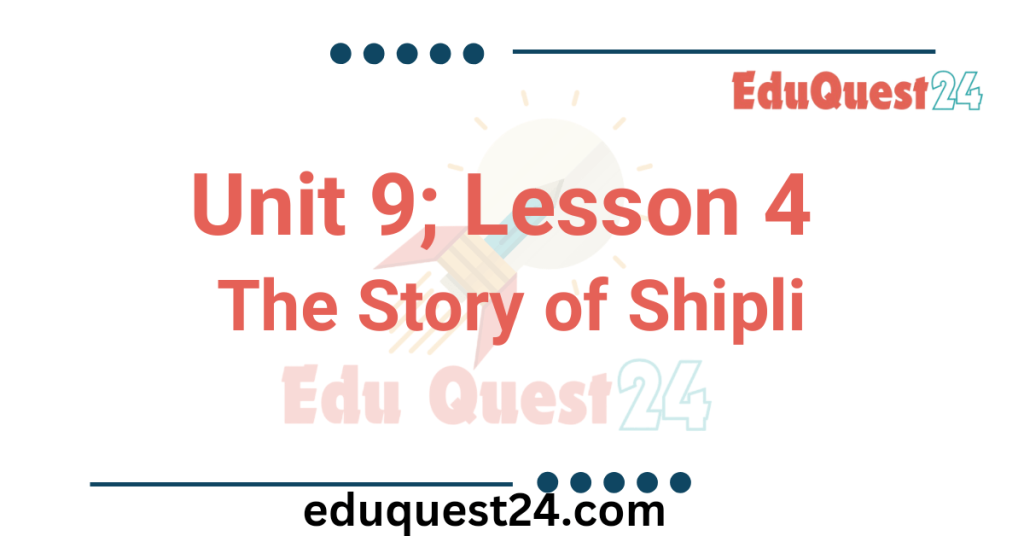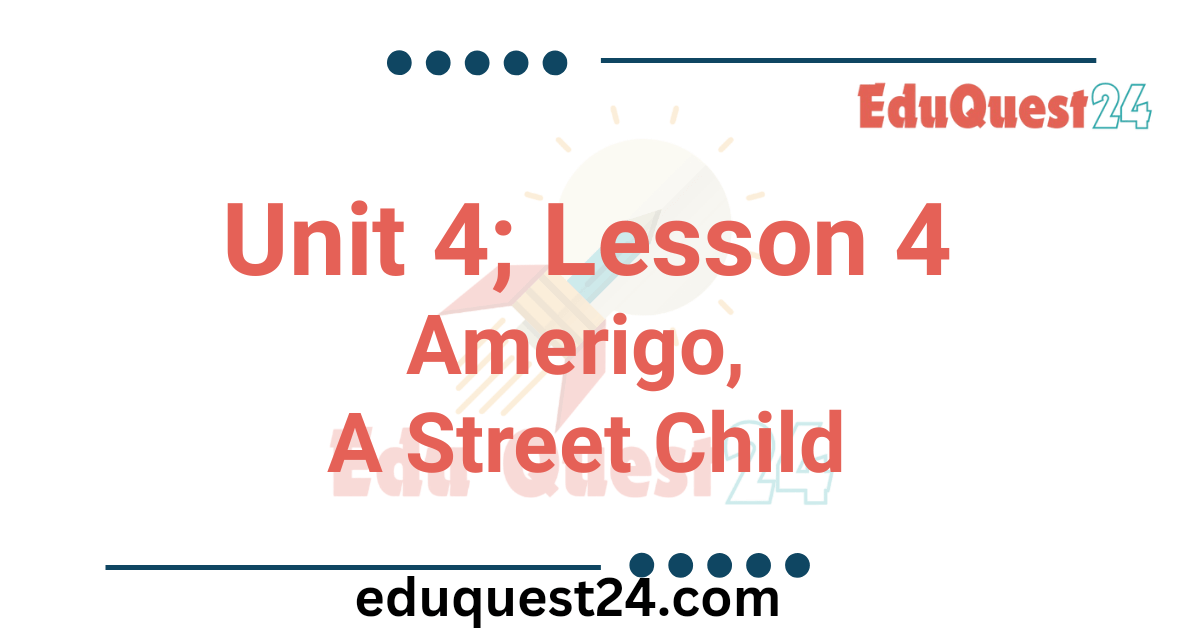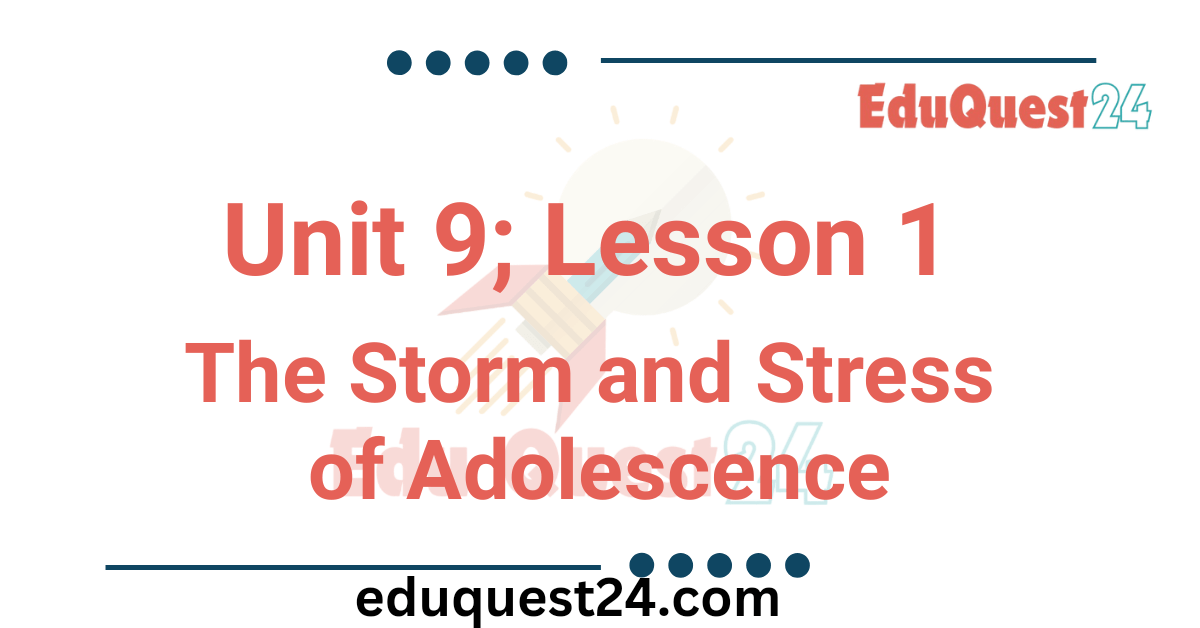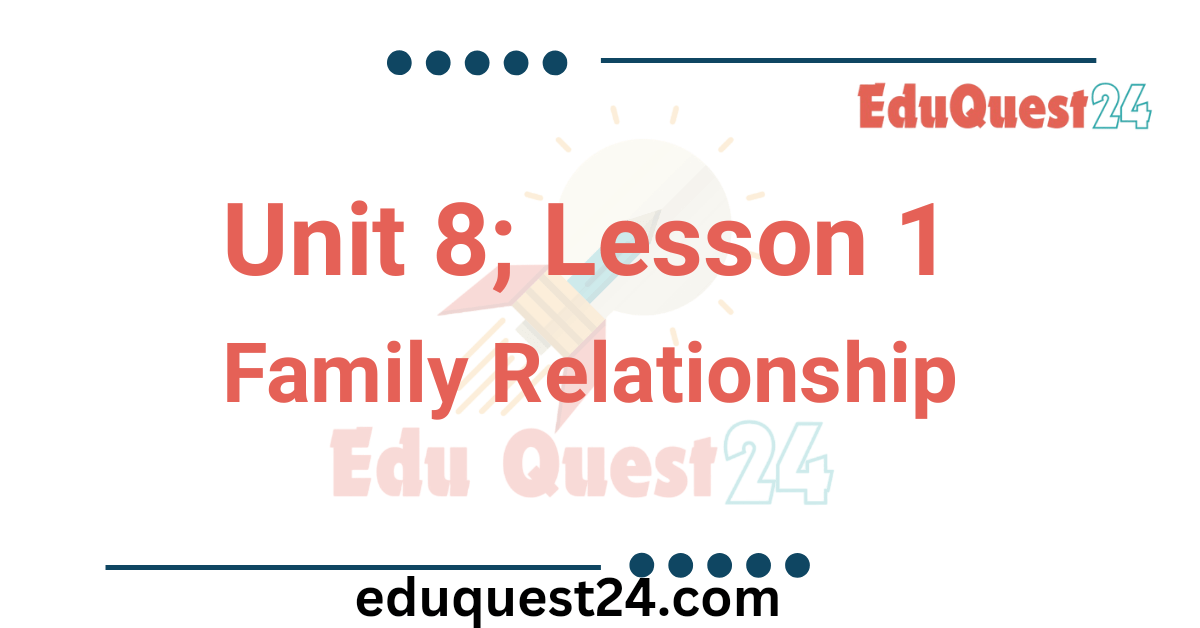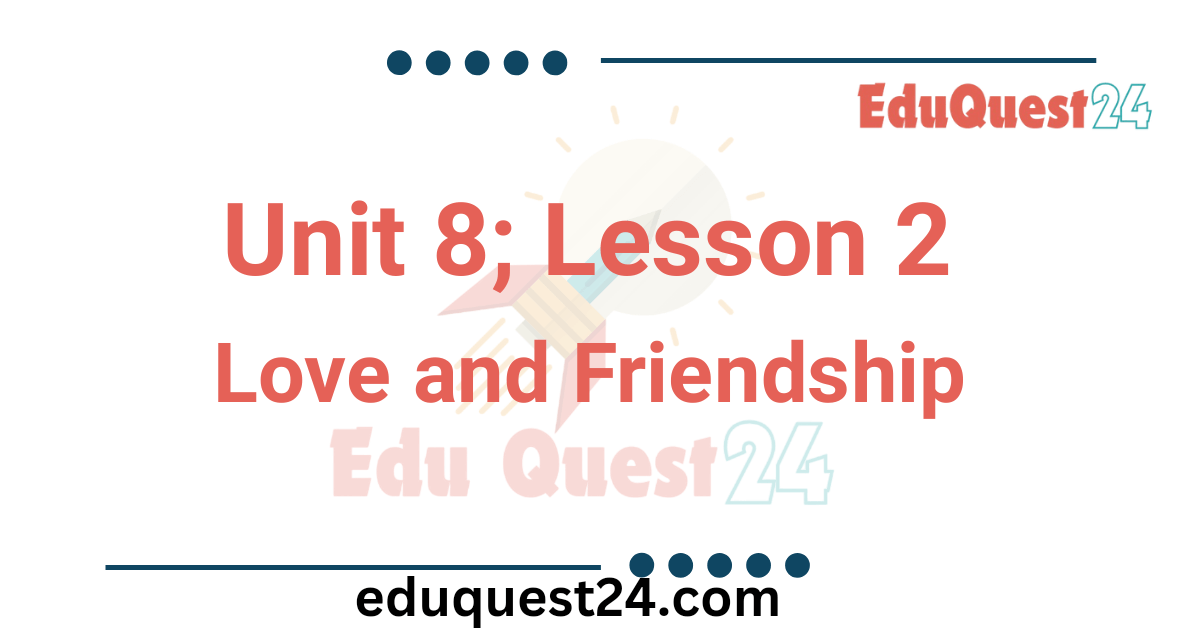Hello students! Today, I’ll share the Bangla translation of a passage from the HSC English 1st Paper Unit 9: Adolescence, Lesson 4: “The Story of Shilpi.” I’ll also provide MCQs, questions and answers, a summary, and their Bangla meanings. You can read the passage online or download it as a PDF to read offline. Let’s begin!
Unit Nine: Adolescence
lesson 4: The Story of Shilpi
The Story of Shilpi HSC Passage
➤[B] Read the text and answer the questions that follow: The Story of Shilpi
Shilpi was only 15 years old when she married Rashid in 2008. Marrying off daughters at an early age is a standard practice for many families living in rural Bangladesh. After her wedding, Shilpi joined a local [empowerment group that provides
২০০৮ সালে শিল্পী যখন রশিদকে বিয়ে করে তখন তার বয়স ছিল মাত্র ১৫ বছর। মেয়েদের অল্প বয়সে বিয়ে দেয়া বাংলাদেশের প্রত্যন্ত অঞ্চলের বসবাসকারী অনেক পরিবারের স্বাভাবিক প্রথা। বিয়ের পরে শিল্পী একটি স্থানীয় ক্ষমতায়ন দলে যোগ দেয় যেটা কিশোরী মেয়েদের সাংস্কৃতিক রেওয়াজগুলো বিশেষ করে
adolescent girls with the tools needed to gradually change cultural practices, particularly those pertaining to early marriage and pregnancy. The group’s activities include discussions on how to most effectively change behavior related to reproductive health as well as one- on-one counselling. It also offers peer-to-peer support and life skills training that help adolescents say no to early marriage. The empowerment group is one of more than 10,000 groups supported by some local Non-Government Organizations (NGOs) working all over Bangladesh. These NGOS work through Canada’s Adolescent Reproductive Health Project which also aims to increase access to quality health services for adolescents. During one of the group sessions, Shilpi came to understand the potentially harmful effects of early marriage and pregnancy.
যেগুলো বাল্য বিবাহ ও গর্ভধারণের সাথে সম্পর্কিত সেসব প্রথাগুলোকে ধীরে ধীরে পরিবর্তন করার হাতিয়ার প্রদান করে। দলটির কার্যক্রমের মধ্যে রয়েছে প্রজনন স্বাস্থ্যের সাথে সম্পর্কিত আচরণকে কীভাবে সবচেয়ে কার্যকরভাবে পরিবর্তন করা যায় সে বিষয়ে আলোচনা ও সেই সাথে সবাইকে এককভাবে পরামর্শ দেওয়া। এটা তথ্য কেন্দ্র সহায়তা ও জীবন দক্ষতার প্রশিক্ষণও দেয় যা কিশোরীদের বাল্য বিবাহে প্রতিবাদ জানাতে সাহায্য করে। এই ক্ষমতায়ন দলটি হলো সারা বাংলাদেশ কর্মরত কিছু স্থানীয়/দেশীয় এনজিও সমর্থিত দশ হাজারেরও বেশি দলের একটি। এসব এনজিওগুলো কানাডার কিশোর-কিশোরীদের প্ৰজনন স্বাস্থ্য প্রকল্পের অধীনে কাজ করে যেটার লক্ষ্য হচ্ছে কিশোর-কিশোরীদের জন্য মানসম্মত স্বাস্থ্য সেবার সুযোগও বাড়ানো। একটি গ্রুপ সেশনে শিল্পী বাল্যবিবাহ ও গর্ভধারণের সম্ভাব্য ক্ষতিকর প্রভাবগুলো সম্পর্কে জানতে পেরেছিল
While maternal mortality in Bangladesh has declined by more than 50 percent since 2001, the rate remains high with 173 maternal deaths per 1,00,000 live births in 2017-dropping from 322 in 2001. Girls who get pregnant are at risk of serious health complications. These include dangerous hemorrhage and fistula, a painful internal injury caused by obstructed childbirth that commonly leads to serious maternal morbidities and social exclusion.
যদিও ২০০১ সাল হতে বাংলাদেশ মাতৃ মৃত্যুর হার ৫০ শতাংশের বেশি কমেছে, তবুও মৃত্যুর হার এখনও বেশি যা ২০০১ সালে ৩২২ থেকে কমে ২০১৭ সালে প্রতি এক লাখ বাচ্চা প্রসবে মাতৃ মৃত্যুর হার ১৭৩ হয়েছে। যেসব মেয়েরা গর্ভবতী হয়। তারা মারাত্মক স্বাস্থ্য জটিলতার ঝুঁকিতে থাকে। এসবের মধ্যে রয়েছে বিপজ্জনক রক্তক্ষরণ এবং ফিস্টুলা/ভগন্দর রোগ যা বাধাপ্রাপ্ত বাচ্চা প্রসবের দ্বারা সৃষ্ট যন্ত্রণাদায়ক অভ্যন্তরীণ ক্ষত, যা মারাত্মক মাতৃ অসুস্থতা ও সামাজিক বাধাগ্রস্ততার দিকে সাধারণত ধাবিত করে।
When Shilpi heard about those risks she invited her husband, Rashid, to discuss pregnancy with a counsellor After hearing about the risks, Rashid agreed to delay having children for five years despite pressures from his parents and neighbors to produce an offspring. Together, the couple met with a female health care provider who informed them about the various family planning options available.
“যখন শিল্পী ঐসব ঝুঁকির বিষয়ে শুনল, সে তার স্বামী রশিদ কে একজন পরামর্শদাতার সাথে গর্ভধারণ বিষয়ে আলোচনার জন্য নিয়ে গেল। ঝুঁকি সম্পর্কে শোনার পর তার পরিবার ও প্রতিবেশীদের পক্ষ থেকে বাচ্চা নেওয়ার চাপ সত্ত্বেও রশিদ আরও ৫ বছর সন্তান নিতে বিলম্ব করতে সম্মত হলো। এই দম্পতি একত্রে একজন মহিলা স্বাস্থ্য সেবা প্রদানকারীর সাথে সাক্ষাৎ করে, যিনি তাদেরকে সহজলভ্য বিভিন্ন ধরনের পরিবার পরিকল্পনা পদ্ধতি সম্পর্কে তথ্য প্রদান করেন।
Shilpi’s mother-in-law and neighbors continued to pressurize the newlyweds. Deeply rooted cultural practices and traditions caused a rift between Shilpi and Rashid and their extended family, some of whose members insulted and criticized the couple. Unable to convince their close relatives of the risks, Shilpi and Rashid returned to the counsellor. They took the help of a parent peer who had been trained to speak to other parents about adolescent issues. Shilpi’s mother-in-law and neighbors eventually came to understand the harmful effects of early pregnancy on mother and child.
শিল্পীর শাশুড়ি ও প্রতিবেশীরা নব দম্পতিকে অবিরাম চাপ দিতে থাকল। বদ্ধমূল সাংস্কৃতিক প্রথা ও ঐতিহ্য শিল্পী ও রশিদ এবং তাদের পরিবারের অন্যদের মধ্যে দূরত্বের সৃষ্টি করে, যাদের কেউ চ কেউ এই দম্পতিকে অপমান 13 সমালোচনা করত। ঝুঁকি সম্পর্কে নিকট আত্মীয়দের বোঝাতে ব্যর্থ হয়ে, শিল্পী ও রশিদ পরামর্শদাতার নিকট ফিরে যায় । তারা একজন পিতামাতার সমকক্ষ ব্যক্তির সাহায্য নিয়েছিল যিনি বয়ঃসন্ধিকালের বিষয় নিয়ে অন্যান্য পিতামাতাদের সাথে কথা বলতে প্রশিক্ষিত। শিল্পীর শাশুড়ি ও প্রতিবেশীরা অবশেষে মা ও শিশুর ওপর অপরিণত গর্ভধারণের ক্ষতিকর প্রভাব সম্পর্কে বুঝতে পারেন ।
After that, the village no longer pressurized the couple; their parents and neighbors began to support them and speak out against early marriage and pregnancy.
এরপর থেকে গ্রামবাসী এই দম্পতিকে আর চাপ দেয়নি; তাদের মা-বাবা ও প্রতিবেশীরা তাদেরকে সমর্থন করা এবং বাল্যবিবাহ ও গর্ভধারণের বিরুদ্ধে কথা বলা শুরু করেছিল।
Read More:
MCQs on the text about The Story of Shilpi:
1. What does “empowerment” mean in the context of the text?
A) Restriction
B) Enabling individuals to take control
C) Isolation
D) Disempowerment
Answer: B) Enabling individuals to take control
2. What is the meaning of “counselling”?
A) Providing entertainment
B) Offering guidance or advice
C) Conducting a survey
D) Giving medical treatment
Answer: B) Offering guidance or advice
3. What does “reproductive health” refer to?
A) Health related to childhood
B) Health related to reproductive system and sexual health
C) General health care
D) Health for elderly people
Answer: B) Health related to reproductive system and sexual health
4. What does “morbidities” mean?
A) Healthy conditions
B) Illnesses or diseases
C) Fun activities
D) Economic benefits
Answer: B) Illnesses or diseases
5. What does “hemorrhage” refer to?
A) Infection
B) Excessive bleeding
C) Recovery
D) Minor injury
Answer: B) Excessive bleeding
6. What does “obstructed” mean in this context?
A) Clear
B) Blocked or hindered
C) Enhanced
D) Supported
Answer: B) Blocked or hindered
7. What does “pressurize” mean?
A) To support
B) To create pressure to conform or comply
C) To relax
D) To encourage independence
Answer: B) To create pressure to conform or comply
8. What does “criticism” refer to?
A) Praise
B) Disapproval or finding faults
C) Encouragement
D) Neutral feedback
Answer: B) Disapproval or finding faults
9. What does “adolescent” mean?
A) A toddler
B) A young adult or teenager
C) An elderly person
D) A middle-aged individual
Answer: B) A young adult or teenager
10. What does “cultural practices” refer to?
A) Laws
B) Traditions and customs of a community
C) Economic policies
D) Medical practices
Answer: B) Traditions and customs of a community
11. What is the meaning of “options” in this context?
A) Choices or alternatives
B) Restrictions
C) Requirements
D) Obligations
Answer: A) Choices or alternatives
12. What does “social exclusion” refer to?
A) Inclusion in community activities
B) Being left out of social groups
C) Social support
D) Positive interactions
Answer: B) Being left out of social groups
13. What does “understanding” mean in this context?
A) Misinterpretation
B) Comprehension or awareness
C) Ignorance
D) Confusion
Answer: B) Comprehension or awareness
14. What does “tradition” refer to?
A) A new trend
B) A long-established custom or belief
C) A temporary practice
D) A modern idea
Answer: B) A long-established custom or belief
15. What does “support” mean in the context of family and community?
A) To hinder
B) To provide assistance or encouragement
C) To criticize
D) To ignore
Answer: B) To provide assistance or encouragement
Write a Summary about The Story of Shilpi.
Shilpi married at age 15 in rural Bangladesh, where early marriage is prevalent. Following her wedding, she joined a local empowerment club that teaches girls about the perils of early marriage and motherhood. Shilpi learned about the major health hazards of early pregnancy from this group, including maternal death and problems such as fistula. Shilpi and her husband, Rashid, were concerned and chose to postpone having children in order to seek family planning guidance from a doctor. Despite pressure from family and neighbors, they persisted to seek advice, and with the assistance of a professional peer, they informed their relatives about the risks. Shilpi’s tribe eventually accepted their decision, and attitudes regarding early marriage and pregnancy began to shift.
HSC English 1st Paper Unit 9, Lesson 4: The Story of Shilpi Bangla Meaning PDF Download.

